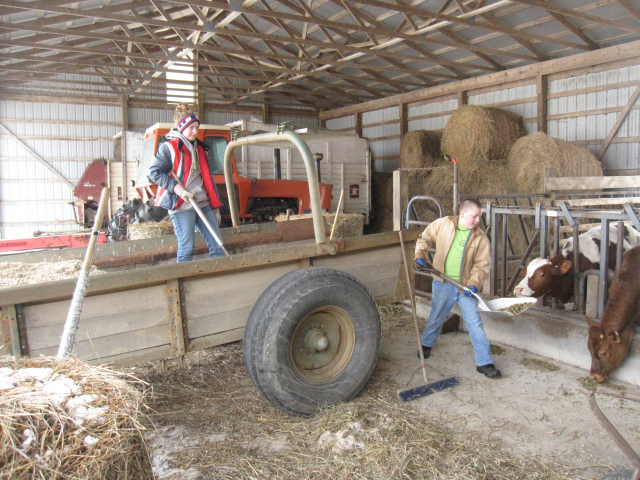Suffolk County looking at ways to get ‘ag-ed’ in schools
UPSTATE

“Farming was always around me. It just seemed so typical,” said 20-year-old Leann Green of Steuben County, who grew up in what she called “a small farming town.”
Ms. Green — who’s now a junior at SUNY/Cobleskill majoring in agricultural business — attended Jasper-Troupsburg Junior-Senor High School, which offers multiple elective agricultural classes starting in eighth grade.
“We were plowing fields, planting corn and then marketing it and selling it to the community,” she said. “It was a really cool process.”
Her high school had a two-acre farm on campus where students could engage in hands-on learning. It also had classrooms dedicated to agricultural studies, where students were taught production, advertising and even welding, Ms. Green said.
“It wasn’t until getting that hands-on experience in the classroom that [agriculture] sparked an interest as a career,” she said. “I didn’t grow up in a farming family.”
She hopes to one day teach agriculture to high school students.
Much of the current approach to teaching the state’s primary and secondary students about farming dates back to 1985, when a federally funded program known as New York Agriculture in the Classroom was designed to give educators the support needed to bring the industry into schools.
“What it really comes down to is the teacher and administration interest [within a given district],” said program coordinator Katie Bigness.
She said she is not aware of any district that has a full K-12 integrated agriculture program, with a class dedicated to agriculture for each grade level. However, several high schools — including Jasper-Troupsburg — offer agricultural classes as electives to high school students.
Electives are taught by teachers certified in agricultural studies who have put in 30 hours of higher education to receive the designation. There are about 115 certified agriculture teachers statewide, but only two currently teach in Suffolk County -— at H.B. Ward Technical and Academic Center in Riverhead, where they leading courses on animal science.
The Agriculture in the Classroom program is funded through annual grant funding from the state Department of Agriculture and Markets and is run in partnership with the state Education Department, Cornell University and Cornell Cooperative Extension, as well as the New York Farm Bureau.
Some schools with strong agricultural curricula also host Future Farmers of America programs, which offer students career development opportunities through conferences and statewide events. About 4,000 students across New York are involved with FFA at given time, according to the program’s website, nyag-ed.org.
“Every school does it differently,” Ms. Bigness said of the different agricultural curricula in play. Some schools, for example, have integrated studies with after-school activities, like clubs.
“We want our students to think about agriculture in the context of what they are already learning,” she said. “In social studies classes you talk about westward expansion or the Dust Bowl. There are easy ways to incorporate agriculture into these lessons.”
Ms. Bigness said the program offers interested teachers access to 60 lessons — free through grant funding — aligned to State Common Core Standards that can be incorporated across multiple subject areas.
One of the lesson plans, for example, is designed around irrigation, westward expansion and engineering and culminates in a competition in which students create and execute a plan for building their own miniature waterway.
Using straws, foil and other inexpensive materials, students must move the largest amount of water the longest distance possible.
“Really, if you want to engage students in the classrooms, you need to engage the teachers,” Ms. Bigness said. “Teachers don’t even realize when they are talking about agriculture half the time.”
Teachers interested in learning more about the program can visit http://www.agclassroom.org/ny/resources/flp.htm.








